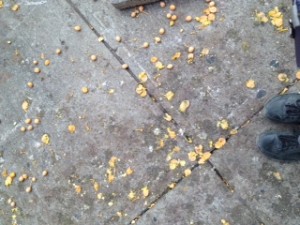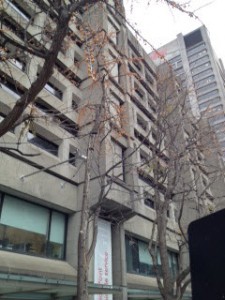If you’ve walked by the McLennan Library Building on McTavish Street over the past few weeks, then you’ve likely been overcome by a distinctly foul odour. The first time you smelled it, maybe you figured some guy vomited in front of Service Point on the way back from Peel Pub the previous night. But as the days passed with no relief, you began wondering how such a truly fetid smell could linger in the open air for weeks on end.
So what’s the source? It’s actually Ginkgo biloba.
The row of trees lining the western side of the building are ginkgos. These fascinating trees have been called “living fossils,” as they are by far the longest surviving species of tree on earth. Native to China, they have thrived for over 200 million years. Ginkgos are particularly resilient. In fact, a group of them survived the atomic bomb that exploded on Hiroshima, and are still alive today.
The odour, however, comes from the grape-sized ginkgo seeds. As they fall to the ground each autumn, crack open and get stomped on, nasty stink juice is released. Ginkgo trees come in male and female varieties, the latter of which produce the noxious seeds.
Unfortunately, McLennan’s larger ginkgos are all females and produce an abundance of seeds each year. Because of the smell, many municipalities will only plant male ginkgos on public land, and even chop down female trees (sexist much?).
But don’t worry, our smelly ginkgos are here to stay. Then again, judging by the looks of these branches, we’re in for plenty more stink bombs in the coming days.


